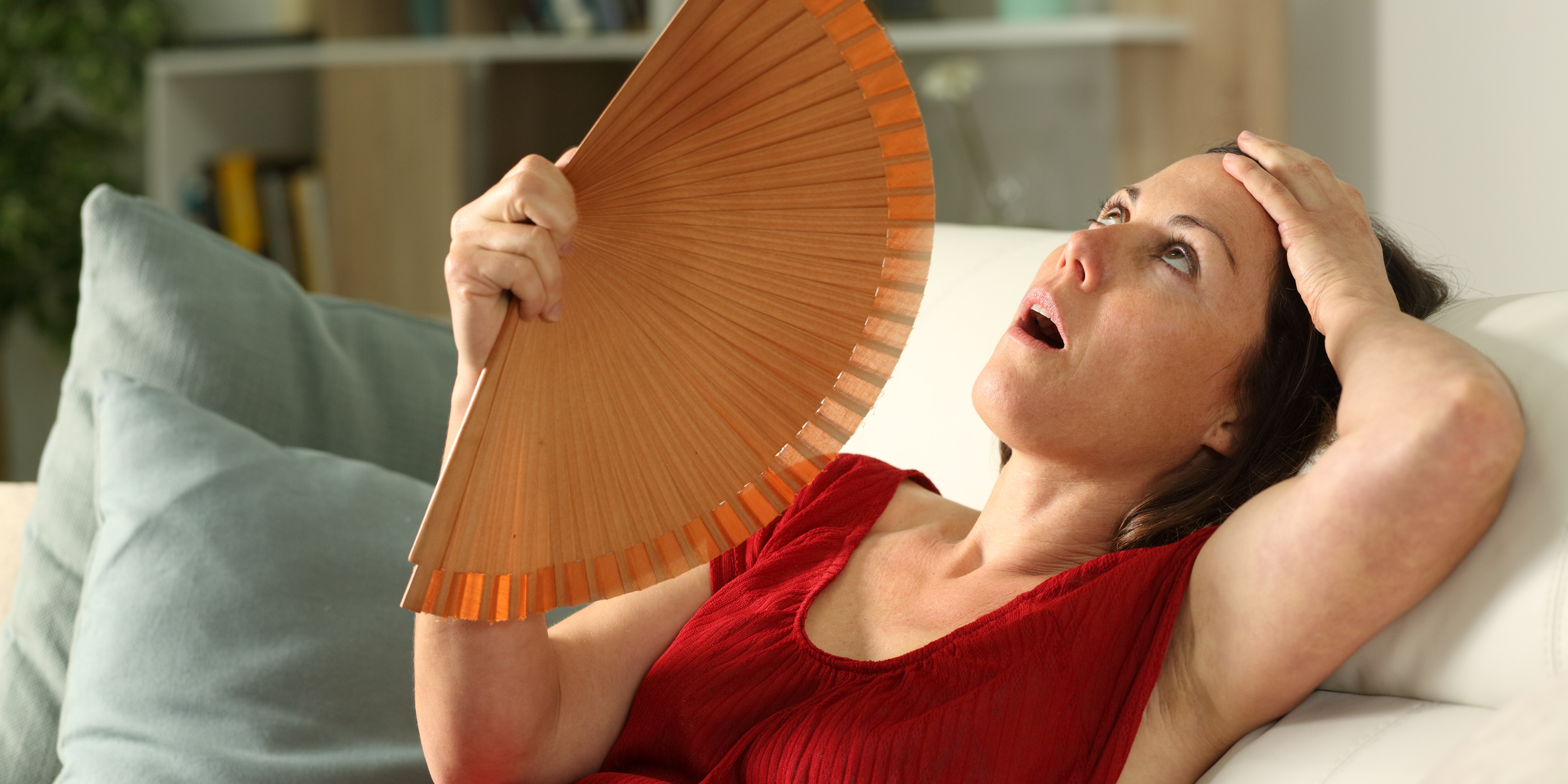Feeling the Heat
As the summer weather is starting to heat up, how your body perceives temperature may change depending on a multitude of factors - age, environment, hydration level, and hormones. There are many ways that female sex hormones also influence other areas of our bodies, one of these being how the body perceives temperature.
We have discussed in previous blog posts the influence that estrogen and progesterone have on other areas of the body, this topic is not new. Today in this blog post we will be exploring the way these hormones are connected to the body’s thermoregulation. We will also discuss some helpful tips to beat the heat this summer!
Before we get into the specifics of estrogen and progesterone’s influence on the body’s thermoregulation, its important to briefly explain how the body’s temperature system works.
The body likes to keep its temperature within a tight range around 37°C, this is regulated by the hypothalamus in the brain. Everybody is unique with its own “normal” temperature that may be slightly below or above 37°C. This temperature range changes based on the body’s ability to adapt to environmental condition changes. When the body temperature gets low, the hypothalamus sends the necessary signals for the body to generate and maintain heat, by shivering or engaging in other activities. When the body temperature rises, the hypothalamus sends the necessary signals for the body to give off heat by sweat producing on the skin.
In the body, estrogen and progesterone counter act against each other. While estrogen stimulates tissue growth, progesterone stops tissue growth. Estrogen helps stimulate contractions and promotes bloating and swelling, progesterone decreases contractions and inflammation. This balancing act helps to regulate the body’s complex ecosystem on many levels. Estrogen and progesterone influence the body’s thermoregulation on two different levels, both centrally and peripherally in the body.
Estrogen tends to encourage a lower body temperature with the role it plays in heat dissipation in the body through the skin's blood flow, whereas progesterone encourages a higher body temperature with a focus on heat preservation in the body.
As we can see, estrogen and progesterone once again play a balancing act. If estrogen and progesterone are not in sync with their balancing act, this can cause some big fluctuations in the body’s ability to regulate it’s core temperature. This is commonly seen when women are in the change of life we call perimenopause. Hot flashes are commonly seen in association with this phase of life. For more information on all thing's perimenopause, check out What the Change!
To help mitigate the increased sensitivity to heat, staying hydrated can help. This doesn’t involve drinking large amounts of water at once, but rather sipping throughout the day. The large intestine can only absorb 800 milliliters (about 27.05 oz) per hour, anything more can cause reverse dehydration. It can also be helpful to hydrate with cool water to help the body maintain a cooler core temperature. Another tip that can help is to be mindful of heat exposure. If you’re feeling very heat sensitive, hot yoga, sauna, or a hot tub may not be the best idea in that moment. Hormone therapy and adaptogens may also be helpful for your body and can offer great improvements.
As the summer beings to arrive your temperature sensitivity may be different this year than years before. Depending on a few different factors, such as your hormone’s estrogen and progesterone balance, you may experience differences in thermoregulation. Use some of the helpful tips listed above to help keep yourself from overheating. Enjoy soaking up the sun, with SPF of course (we can leave the hormone and skin sun sensitivity topic for a future blog post)!
Reference:
https://pubmed.ncbi.nlm.nih.gov/28488202/#:~:text=Estradiol%20and%20progesterone%20influence%20thermoregulation,conservation%20and%20higher%20body%20temperatures.
https://www.ncbi.nlm.nih.gov/books/NBK279457/#:~:text=Our%20internal%20body%20temperature%20is,body%20generates%20and%20maintains%20heat.
https://pubmed.ncbi.nlm.nih.gov/26674572/#:~:text=In%20general%2C%20estrogens%20tend%20to,skin%20blood%20flow%20and%20sweating.

